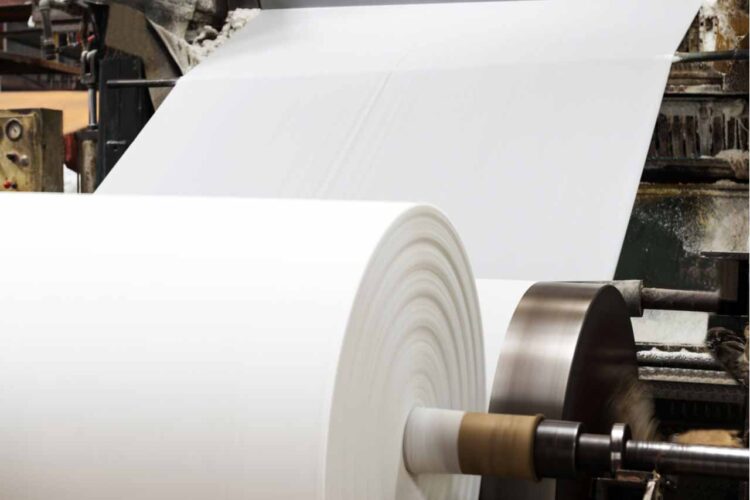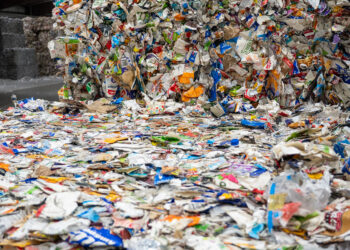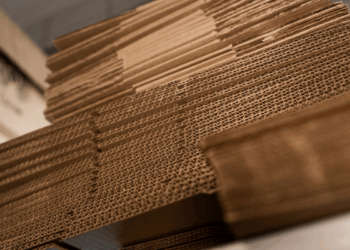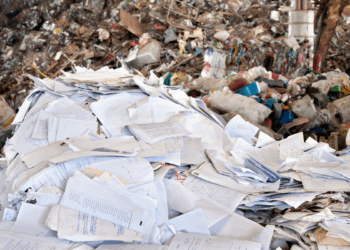Three paper companies recently closed facilities that use recycled material. Two framed the shutdowns as part of longer-term “optimization” plans, and the third said it is a direct response to the COVID-19 impact on demand.
Pandemic drives multiple mill closures
Verso Corporation on June 9 announced it will indefinitely idle paper mills in Duluth, Minn. and Wisconsin Rapids, Wis.
In a release, the company said the closures are a move to “offset unprecedented market decline due to the COVID-19 pandemic and to reposition the company for future success.”
One recent mill shutdown was tied to the decline in office paper demand due to offices and schools being closed during the pandemic. But the Verso closures show another ripple impact hitting the paper sector.
“The decision to reduce production capacity is driven by the accelerated decline in graphic paper demand resulting from the COVID-19 pandemic,” the company wrote. “The stay-at-home orders have significantly reduced the use of print advertising in various industries, including retail, sports, entertainment and tourism.”
Verso recently invested in a project to convert part of its Duluth, Minn. mill from producing writing and printer papers to producing recycled paper packaging. Early this year, the company said the mill would be producing 90,000 tons of recycled products per year, including containerboard and kraft packaging. The project was scheduled to start up in January, and Verso was considering a larger conversion to produce substantially more recycled packaging at that facility.
Overall, the Duluth mill has about 270,000 tons per year of capacity for graphic paper and recycled packaging, and the Wisconsin Rapids mill can produce 540,000 tons per year of coated and packaging papers, according to company filings.
The company indicated all options are on the table for the future of the mills. Verso plans to explore “viable and sustainable alternatives for both mills, including restarting if market conditions improve, marketing for sale or closing permanently.”
Verso will idle the Duluth mill by the end of June and the Wisconsin Rapids mill by the end of July. The company will lay off about 1,000 employees, according to the announcement.
More action by Greif in Alabama
Greif, a major paper producer and recycled fiber consumer, will permanently close a recycled board mill in Mobile, Ala. The announcement last week came after the company shut down one paper machine at the facility last fall.
In a release, the company said the closure “removes approximately 140,000 tons of [uncoated recycled board] capacity from Greif’s network.”
During the company’s June 4 quarterly earnings call, CEO Peter Watson said the closure is “part of our ongoing network cost optimization activities.”
He added that the closure plans date back to before the COVID-19 pandemic hit.
“We’ve been talking since last June about being in an industrial recession,” Watson said. “So we kicked off a process last fall of going through and reviewing every single one of our plants, across all of our businesses.”
The Mobile mill was not a cost-effective operation, he explained, and Greif plans to shift all the business from that plant to other facilities across the company’s network.
Ontario containerboard closure
Paper and packaging giant Cascades plans to close a corrugated packaging facility in Burlington, Ontario. In a release, the company said the move is part of its “continuing optimization initiatives” for its containerboard packaging sector.
Cascades acquired the Burlington converting plant in 2017. The facility in 2018 produced 81,000 square feet of corrugated packaging, placing it as the company’s smallest converting facility in terms of capacity.
Cascades’ other Ontario plants will make up for the lost capacity at the Burlington facility, according to the release.
“This decision was necessary to align present production capacities, position our platform for mid- and long-term success, improve productivity, reduce fixed costs and strengthen our service offering for our valued customers,” company President Charles Malo said in the release.
It’s unclear how the closure will shift Cascades’ recovered material use. Cascades uses recycled fiber in most of its packaging products. In 2018, for example, across all its facilities, Cascades consumed 4 million short tons of fiber, of which 82% was recycled material, according to the company’s annual report.
Cascades brings in recovered fiber through its Cascades Recovery collection and MRF operations, as well as through contracts with external suppliers.






























